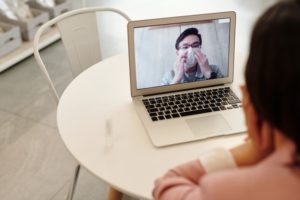 Everywhere you go — you were told there is this very nasty virus causing COVID-19 infection. It is a very bad lung infection that is highly infectious. Many people including doctors, nurses even royalty and politicians have been infected. Thousands have succumbed to the disease while many others have been cooped up at home in fear of getting infected themselves.
Everywhere you go — you were told there is this very nasty virus causing COVID-19 infection. It is a very bad lung infection that is highly infectious. Many people including doctors, nurses even royalty and politicians have been infected. Thousands have succumbed to the disease while many others have been cooped up at home in fear of getting infected themselves.
Isn’t it scary?
Yes, it is. More so if you have weak immunity due to cancer or if you are an organ transplant recipient on immunosuppression therapy.
Are transplant recipients or cancer patients at higher risk to get infected by the virus?
When you are immunocompromised — you are much more vulnerable to get infections including viral infection such as this corona virus. Currently however, there is no strong evidence or specific information regarding COVID-19 infection would affect transplant recipients or cancer patients. But based on data from influenza and SARS, if respiratory viral infection occurs in an immunocompromised patient, they tend to progress into developing severe pneumonia. This is why it is very important to make sure that you take strict social distancing precaution to avoid getting infected in the first place.
My family member has just returned from an area with high COVID-19 activity. What should I do?
 It is better to be safe than sorry. Do avoid direct contact with them at least for 14 days especially if they have just returned from an area where they could have been exposed to COVID-19. If after 14 days — your family member remains healthy and do not have any COVID19 symptoms, contact can be resumed.
It is better to be safe than sorry. Do avoid direct contact with them at least for 14 days especially if they have just returned from an area where they could have been exposed to COVID-19. If after 14 days — your family member remains healthy and do not have any COVID19 symptoms, contact can be resumed.
If it is not possible for you to avoid contact with them, this is what you can do:-
- Hand wash frequently or you can also use hand sanitizer every time you are touching items or surfaces that have been used by other people
- Anyone with cough, runny nose or other viral symptoms, should stay away from staying with immunocompromised patients.
- Limit your contact with the family member. Maintain as much separation as possible preferably at a distanceof more than three feet or 1 meter.
- Do not share the same toilet or living spaces if possible. Disinfect items that are shared before using.
What should I do if a family member/co-worker is diagnosed with COVID-19?
If a close contact is diagnosed with or suspected of having COVID-19, they should be admitted for quarantine as soon as possible. You as an immunocompromised patient should avoid all further contact with this person. Inform your transplant physician or coordinator that you have been in contact with someone who has been diagnosed with COVID-19. As a close contact of COVID19 positive patient — you will also need to be screened for COVID19.
Please come to the hospital immediately if you develop fever, cough or shortness of breath. This can be a sign that you have been infected with COVID19. Don’t forget to inform the hospital before arriving that you are a close contact of a positive COVID19 patient, and now having symptoms as well. This is important as we need to isolate you away from other patients. We also need to have staff attending to you to wear personal protective equipment to protect themselves from possible infection from you.
Should I reduce my immunosuppression medication so that I do not get COVID19?
You should not adjust your medications yourself without the advice of your doctors. If you have been infected with COVID19, the team who is taking care of you will consult your transplant physician, especially if your transplant medications needed to be reduced.
I still need to go for my chemotherapy. Is it safe for me to do so?
Please contact your oncologist or physician who has been managing you. They will be the best person to decide whether you need to continue with you scheduled chemotherapy or it is risky for you to continue in this pandemic period.
If you are continuing treatment or need to come for follow-up appointments, please call your health care provider before going to the hospital and follow their advice. Some cancer treatments can be postponed but there are patients who cannot delay their treatment. If you are a cancer survivor who is on routine follow-up – you can ask your doctor whether the appointments can be delayed or done via telemedicine. If you need to get your medications from the hospital, find out if the hospital can send it directly to you via post or have someone else pick it up on your behalf.
Dr Nurhidayati is an internal medicine specialist who sub-specialises in nephrology and has a lot of experience with both infectious disease and immunocompromised patients.
Reference
- https://www.myast.org/coronavirus-disease-2019-covid-19-frequently-asked-questions-transplant-candidates-and-recipients
- https://www.cancer.gov/contact/emergency-preparedness/coronavirus
- Cancer guidelines during COVID19 pandemic https://www.thelancet.com/action/showPdf?pii=S1470-2045%2820%2930217-5
[This article belongs to The Malaysian Medical Gazette. Any republication (online or offline) without written permission from The Malaysian Medical Gazette is prohibited.]
